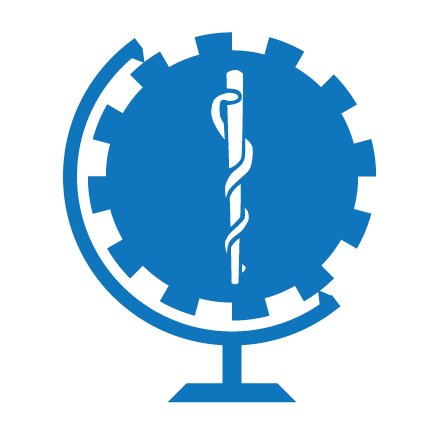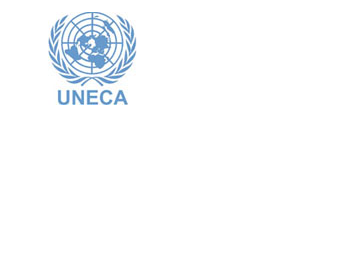Making a Useful Medical Device for the Developing World
My team and I are hard at work on our continuous positive airway pressure (CPAP) machine for low-resource settings. Reading a journal article titled "Effectiveness of medical equipment donations to improve health systems: how much medical equipment is broken in the developing world?" by Lora Perry and Robert Malkin, I was struck by the difficulties inherent in creating a useful medical device for the developing world. There is a fine line between creating a device that is useful in a lab versus creating a device that is useful in the field. Obviously people donate medical equipment to the developing world with... More
Global Health Leaders Discuss Global Health Innovation
After the release of the Obama Administration's budget for 2013 and the resulting cuts from several global health programs, global health leaders met at a congressional briefing to discuss the importance of global health innovation and the United States' consequent role. Directors from key organizations, such as the American Society for Tropical Medicine and Hygiene, the Global Health Initiative and the Center for Disease Control and Prevention, all spoke about how America's role in global health research and funding produced real results, lasting impacts and continue to drive innovation. Examples such as the CDC's role in improving diagnostics by expanding HIV... More
IEEE and UNESCO to promote Engineering in Africa
On February 2nd, both the Institute of Electrical and Electronics Engineers (IEEE) and the United Nations Educational, Scientific and Cultural Organization (UNESCO) signed an agreement to support engineering education outreach for students and teachers in Africa. Apart from outreach, the new initiative also encourages collaboration with accredited programs, technical training and the participation of women to study engineering. In order for us to be able to maintain and improve our quality of life, there needs to be constant innovations in technology and engineering is one of the most useful tools to do so. By following through with this initiative, people not... More
Fake and poor quality drugs: a crisis in Africa.
By Dayana Rojas A recent article in the United Kingdom’s newspaper The Guardian brought attention to the persistent problem of counterfeit and substandard drugs in Africa and other economically poor countries. Although it says that this article is meant to warn scientists of the foul play that the poor people of Africa are enduring due a lack of resources, I believe it does a marvelous job of illuminating the topic of counterfeit and substandard medicines all over the world. According to the article, malaria kills a million people every year. Substandard drugs are hazardous because they ultimately lead to drug resistance, More
2012 to (hopefully) represent innovation in top global health achievements
By Stephanie Nelson Karl Hofmann in his Huffington Post article discusses what he sees are the top ten global health achievements of 2011. While all of these are quiet remarkable, I can’t help but notice most of the achievements are the result of government policies or government spending. As important governmental policy and spending are to the improvement of global health, my hope for 2012 is to see more engineering innovation on the list. Many top universities within the U.S. have taken on global health as a challenge, and it would be really inspiring to see a product designed and developed... More
Blood test-on-a-card offers easier tests for remote areas
mChip from Sam Sia's lab - interesting! Full article here.
Chinese funding for African science: a partnership takes two.
Nature recently featured a compelling series of articles about “Science in Africa”. An eye-opening one entitled “Enter the Dragon”, addresses China’s investment into African countries’ science industries. Why eye-opening? It was news to me that a significant amount of Chinese funding exists for young African scientists and research institutions. Yes, there are (as usual) protests about selfish motivations behind all this money. But, bottom line: China is not only bringing Africans to study in its home institutions through initiatives like The Forum on China-Africa Cooperation (FOCAC), it is also teaching Africans on their own turf, in projects like the Agricultural Technology Resource and Transfer... More
LEED travels to Nicaragua!
During Boston University's spring break, eleven senior design students and three professors from the College of Engineering set out for Nicaragua to try to understand the challenges of health care delivery in resource-limited settings. See pictures from the trip here! Four senior design teams were represented on the trip: Portable No-Power Nucleic Acid Extraction Device Team Members: Laura Blaha, Ellen Reavy Advisor: Catherine Klapperich (LEED) Tissue Diagnostic Instrument for Global Health Applications Based on Optical Spectroscopy Team Members: Molly Keenan, Alessandra Forcucci, Alison Lo Advisor: Irving Bigio (Biomedical Optics Lab) Compact, Label-Free Biosensor for Point of Care Diagnostics Team Members: Amy Canham, Aaron Larocque, Alex Giannakos, Chris Myers Advisors:... More
Small Change Big Impact
With so many large non-profit organizations in the world today, it's easy to get caught up in thinking that the only way to make a positive impact in developing countries is with big goals and big actions. Often times, big ambitions are not achieved through big events. We are regular students from the School of Public Health and the College of Engineering that are working together to make small strides towards bettering the health care administration in developing countries We are working on implementing a low-cost project at Livingstone General Hospital (LGH) in Zambia. A problem common to many hospitals in... More
Impactful Innovation Needs More Meaningful Collaborations
How do we, as scientists, measure the success of our research endeavors? Are we successful as long as we are enjoying the work? Do we have to wait until a unit-less constant or a device bears our name? Is discovery for the sake of discovery a noble enough cause? Perhaps in theoretical sciences those ideals hold. However, in the applied sciences - and engineering and medicine are clearly applied sciences - we must measure our success by the impact we have in daily life. This might be anywhere from creating a greener light bulb to... More











